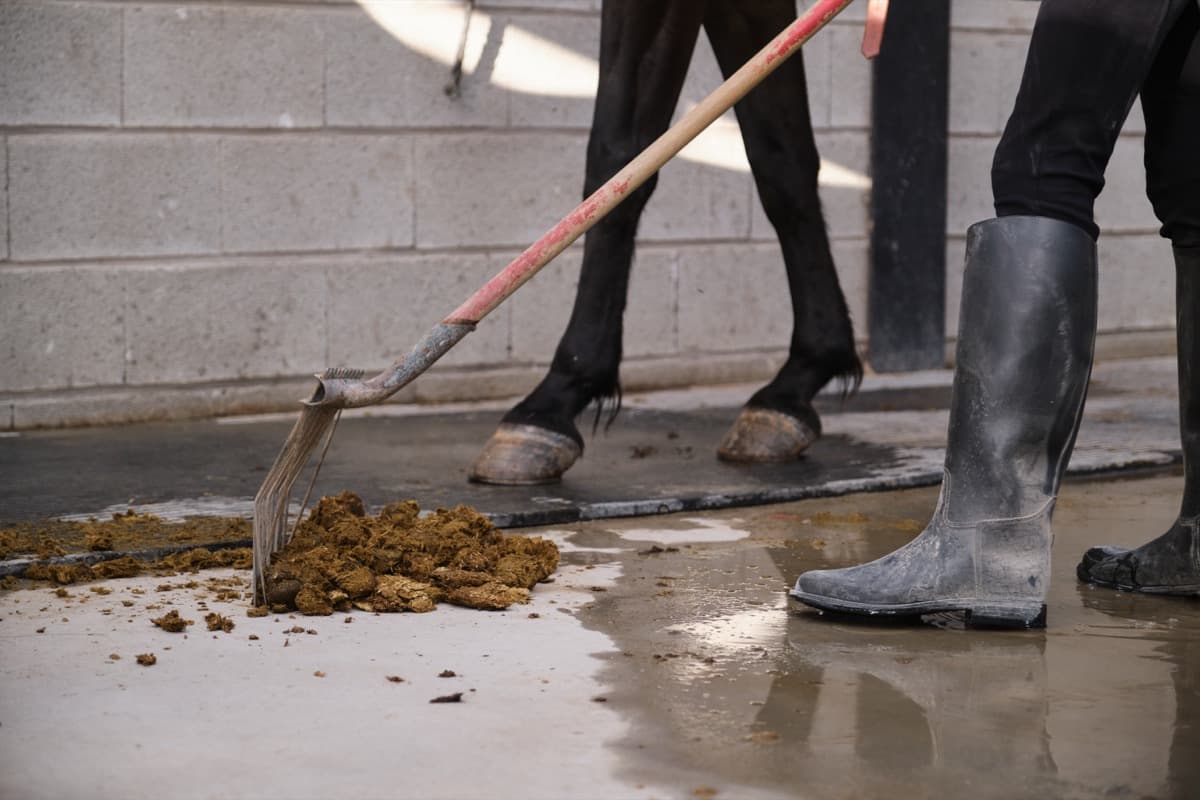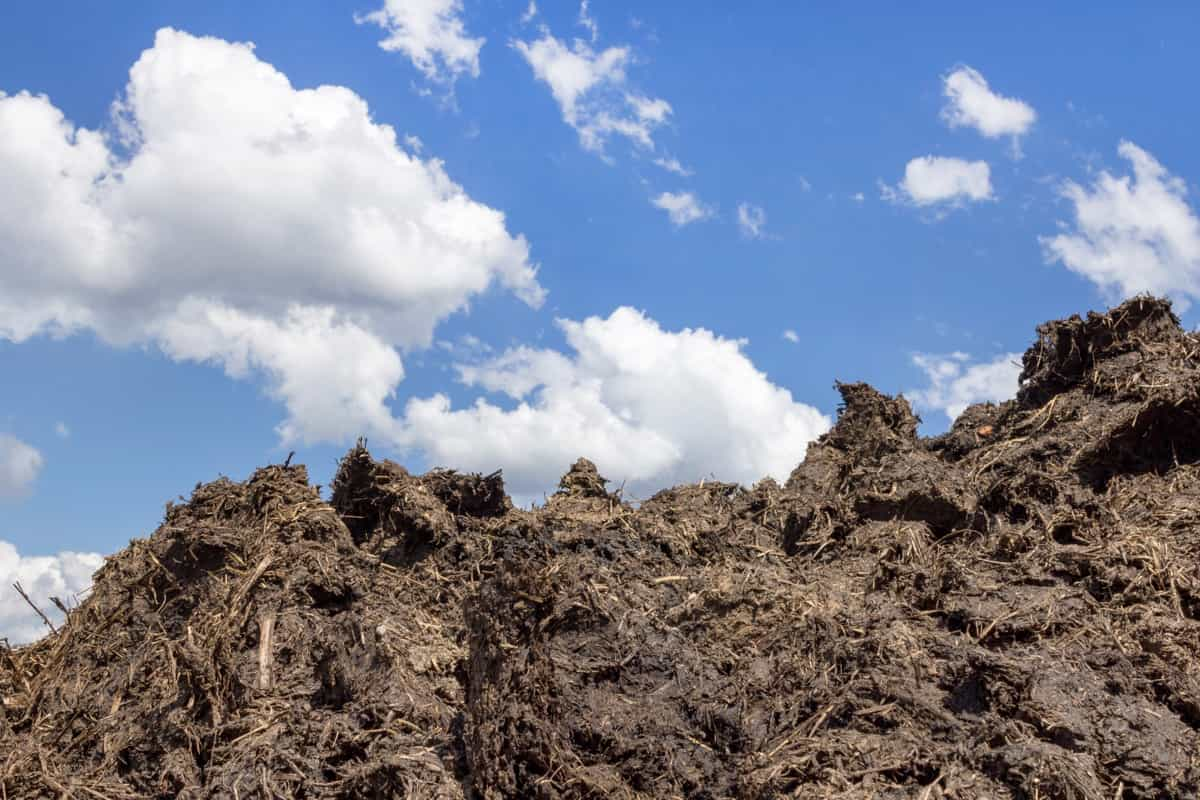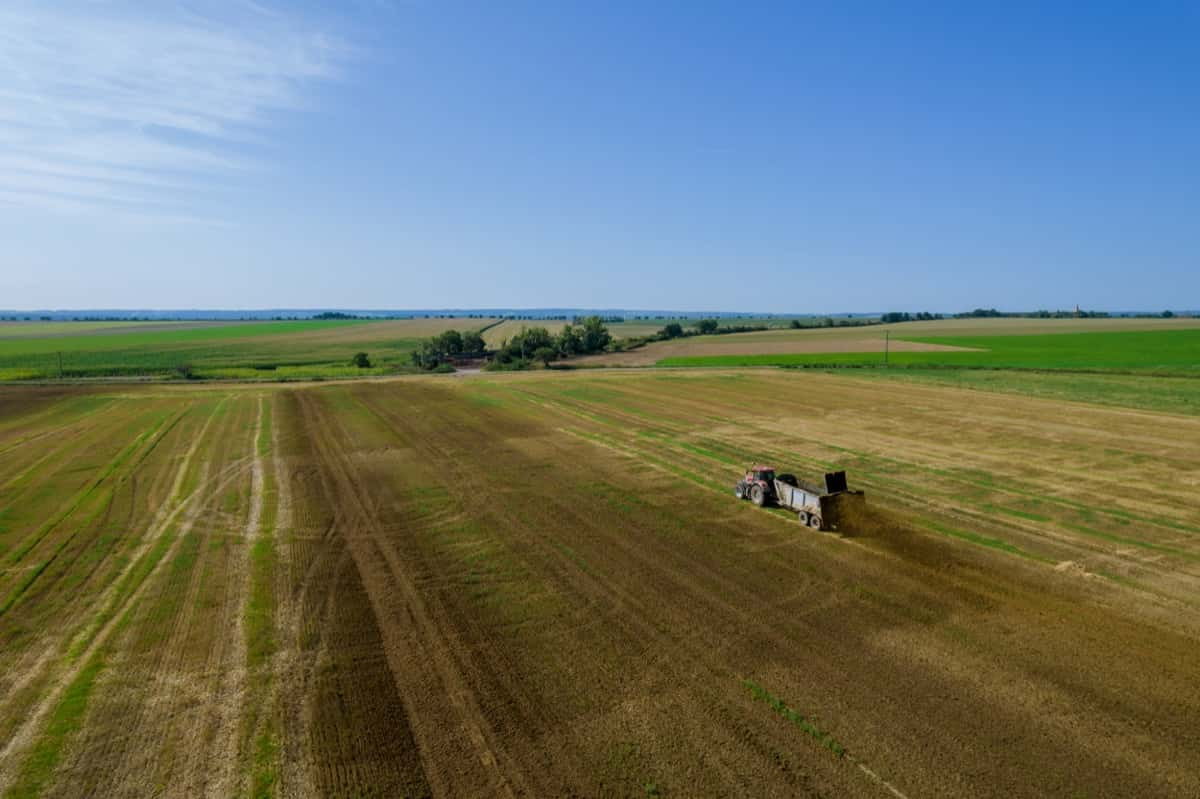Welcome to our insightful blog post, where we delve into the remarkable advantages of utilizing horse manure in agriculture. Derived organic waste material has many benefits that can enhance soil fertility, crop growth, and overall farm productivity. This article will explore the top 10 advantages of incorporating horse manure into agricultural practices. From its nutrient-rich composition to its environmental sustainability, we’ll unveil the wonders of this natural resource.

What is Horse Manure in Agriculture?
Horse manure is a valuable agriculture resource known for its nutrient-rich composition and affordability. It is an excellent plant fertilizer, providing essential nutrients and organic matter to promote healthy growth. However, it is important to use well-aged or composted horse manure to avoid burning plant roots and minimize the presence of weed seeds.
Composting horse manure is a straightforward process requiring no special tools or structures. By turning the pile regularly, maintaining proper moisture levels, and allowing two to three months for composting, you can obtain high-quality horse manure compost that resembles soil and no longer carries a strong odor.
Making and Using of Horse Manure Compost
- Nutrient-rich and cost-effective: Horse manure is a suitable and inexpensive fertilizer that provides essential nutrients for plant growth, giving new plants a strong start.
- Organic matter content: It contains adequate amounts of organic matter, which improves soil structure, moisture retention, and nutrient availability for plants.
- Higher nutritional value: Compared to cow or steer manure, horse manure has a slightly higher nutritional value, making it even more beneficial for plant growth.
- Fresh vs. well-aged manure: Fresh horse manure should not be used directly on plants as it can burn their roots. However, well-aged or dried manure can be safely incorporated into the soil without the risk of root damage.
- Weed seed control: Composting horse manure is recommended to reduce the presence of weed seeds. The heat generated during composting effectively kills most seeds, ensuring a weed-free environment.
- Simple composting process: Composting horse manure follows traditional methods and requires no special tools. Small amounts can be composted using a shovel or pitchfork, while a free-standing pile can be turned into compost. Frequent turning and maintaining moisture levels accelerate the composting process.
- Year-round application: Composted horse manure can be used in the garden at any time of the year. Spread it over the garden area and work it into the soil for optimal results.
What Properties Does Horse Manure Have?
- Easy fermentation: Horse manure undergoes a faster fermentation process than other manure types. This makes it ideal for creating home compost efficiently.
- Antibacterial properties: Horse manure can eliminate harmful bacteria during composting, ensuring a healthier crop environment.
- Low nitrogen level: While plants require nitrogen for growth, controlling the amount applied is important to avoid crop damage. Horse manure has a lower nitrogen content, allowing precise application to meet the plants’ needs.
- Weed prevention: Horse manure acts as a natural mulch, suppressing weed growth and minimizing resource competition.
- Soil structure improvement: It enhances the structure of the soil, particularly in depleted areas, making it more suitable for planting.
- Cost-effective: Horse manure is relatively affordable, making it feasible to use in large quantities without incurring significant expenses.
- Root protection: After planting, it can provide root protection and support healthy plant development.
- Year-round application: Horse manure can be applied at any time of the year, benefiting crops in different seasons, including winter plants.
10 Best Benefits of Horse Manure in Agriculture
Enhanced soil fertility: Horse manure is a powerhouse for improving soil fertility. Its nutrient-rich composition replenishes the soil with essential elements like nitrogen, phosphorus, and potassium, promoting robust plant growth and productivity. The organic matter in horse manure enhances soil structure and provides a favorable environment for plant nutrient uptake.
Improved soil structure: Incorporating horse manure into the soil improves its structure and texture. The organic matter acts as a binder, binding soil particles together and creating pore spaces for better aeration and water infiltration. This improves root penetration, nutrient absorption, and overall plant growth.
In case you missed it: Homemade Horsetail Spray for Pests and Disease Control: Recipe for Organic Benefits of Plants

Increased microbial activity: Horse manure stimulates microbial activity in the soil. Beneficial microorganisms break down organic matter, releasing nutrients in forms that plants can readily absorb. These microbes also enhance soil health by suppressing harmful pathogens and promoting nutrient cycling.
Suppression of plant diseases: Beneficial microorganisms in horse manure helps suppress plant diseases. They compete with and inhibit the growth of pathogenic organisms, reducing the risk of plant infections. This natural disease suppression reduces the need for chemical interventions, making it an environmentally friendly approach.
Improved water retention: The organic matter in horse manure improves the soil’s water-holding capacity. It acts like a sponge for absorbing and retaining moisture, thus reducing water runoff and increasing water availability to plants. This is particularly beneficial in dry climates, where water conservation is crucial for successful crop production.
Enhanced nutrient availability: Horse manure releases nutrients gradually over time, providing a steady supply for plant uptake. This slow-release nature ensures a continuous source of nutrients, reducing the risk of nutrient leaching and optimizing plant utilization. It contributes to balanced nutrition and minimizes nutrient deficiencies.
Reduced reliance on synthetic fertilizers: Incorporating horse manure into agricultural practices reduces the dependency on synthetic fertilizers. The nutrient content of horse manure can substitute or supplement synthetic fertilizers, reducing their usage and associated environmental impacts. This shift towards organic fertilization promotes sustainable and eco-friendly farming methods.
Promotion of beneficial earthworm populations: Horse manure attracts and supports thriving populations of beneficial earthworms. These earthworms burrow through the soil, improving its structure, nutrient distribution, and aeration. Their activities enhance soil fertility and improve soil health and ecosystem balance.
Sustainable waste management: Horse manure provides a sustainable solution for waste management in the agricultural industry. It offers a practical way to recycle and utilize organic waste materials, reducing the environmental burden of waste disposal and contributing to a circular economy.
Enhanced carbon sequestration: By incorporating horse manure into the soil, carbon sequestration is promoted. Organic matter in the manure stores carbon in the soil, helping mitigate climate change by reducing the amount of atmospheric carbon dioxide. This aids in building healthier and more resilient soils while addressing the global issue of carbon emissions.
In case you missed it: Horse Gram (Kulthi Dal) Production Guide: A Step-By-Step Cultivation Practices

Conclusion
The top 10 benefits of horse manure in agriculture encompass enhanced soil fertility, improved soil structure, increased microbial activity, disease suppression, improved water retention, enhanced nutrient availability, reduced reliance on synthetic fertilizers, promotion of beneficial earthworm populations, sustainable waste management, and enhanced carbon sequestration. Harnessing the power of horse manure can revolutionize agricultural practices.
- Feed Your Flock for Less: Top 10 Tips to Save on Chicken Feed
- Ultimate Guide to Ossabaw Island Hog: Breeding, Raising, Diet, and Care
- Hatching Answers: The Top 10 Reasons Your Chickens Aren’t Laying Eggs
- Eggs and Economics: Breaking Down the Cost of Raising Backyard Chickens
- Defend Your Greens: Proven Methods to Keep Iguanas Out of Your Garden
- Ultimate Guide to Cinnamon Queen Chicken: A Comprehensive Guide for Beginners
- Ultimate Guide to California Tan Chicken: Breeding, Raising, Diet, Egg-Production and Care
- Ultimate Guide to Marsh Daisy Chicken: Breeding, Raising, Diet, and Care
- 10 Types of Chicken Farming Businesses You Can Start for Profits